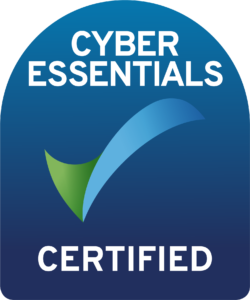Why Do Remote Teams Need Unified Communications In Companies Today?
Unified communications in a company is no longer just a technology choice, it’s a business necessity, especially for teams working remotely. With more UK businesses shifting to hybrid and fully remote setups, communication across locations, devices and platforms has become increasingly disjointed. Without a unified system, the risk of missed messages, delayed updates, and poor customer service goes up fast.
Unified communications (UC) refers to a platform that brings together voice, video, messaging, and file-sharing in one secure system. For businesses with remote staff, this means fewer tools, more control, and a far better experience for everyone, customers included.
When team members work from home, co-working spaces, or different time zones, keeping communication smooth can be hard. Jumping between email, chat apps, Zoom links and phone calls wastes time and increases errors. That’s where unified platforms step in. They create a single space where conversations, documents and collaboration can happen in real time.
This guide explains the role of unified communications in companies with remote teams. It shows how UC solves common communication problems, improves daily workflows, and strengthens overall performance. Whether your team is split across offices or fully remote, this article is for you.
We’ll walk through the pain points remote teams face, how unified communication tools solve them, and how your business can integrate UC with existing systems like CRM or project management tools. If your current setup feels clunky or fragmented, it may be time to unify your communications and unlock more value.
What Problems Do Remote Teams Face Without Unified Communications?
Without unified communications, companies face multiple issues that affect productivity, teamwork and service delivery. For remote teams, these problems are even more pronounced because staff rely entirely on digital tools to stay connected.
Disjointed tools are one of the biggest challenges. A typical remote worker might use email for long updates, WhatsApp for quick chats, Zoom for meetings, and separate platforms for file sharing and task tracking. None of these are synced, and switching between them causes delays, confusion, and errors.
Communication silos can also appear. Without a central hub, different departments may adopt their own tools. Sales might use one platform, customer service another, and admin staff something else entirely. This makes it difficult to track conversations, align updates, or maintain consistency especially when multiple people need access to the same information.
Missed calls and delayed responses are common. If a team member is away from their laptop or using a different device, they might miss customer queries or urgent updates. Unlike a unified system, traditional setups don’t notify staff across all channels in real time.
Limited visibility creates problems for managers too. Without an integrated dashboard, there’s no clear view of who’s online, what tasks are in progress, or which issues are pending. This leads to micro-managing or a lack of accountability.
Duplication of work also becomes an issue. Notes get saved in multiple locations, meetings go unlogged, and customer data is scattered. Team members waste time chasing information that should be centralised and visible to all.
Lastly, there’s the security risk. When teams use different apps without IT oversight, sensitive data can leak. Shadow IT, the use of unapproved tools is common in remote settings, and it opens the door to compliance issues and cyber threats.
All these challenges make it clear: remote teams need one consistent, secure platform where everything happens. That’s what unified communications delivers.

How Does Unified Communications Improve Remote Collaboration?
Unified communications in companies changes how remote teams work together by combining voice calls, video conferencing, chat, and file-sharing into one toolset. This reduces friction and helps staff connect faster, respond quicker, and collaborate better even if they’re never in the same room.
Start with real-time messaging and presence indicators. Team members can see who’s available, busy, or offline, helping them time their messages and calls. Conversations are instant, searchable, and attached to projects or teams, so there’s less repetition.
Video meetings become more productive too. With a UC platform, there’s no need to switch to another app to host a video call. One click starts the meeting, and shared files, notes, and links stay connected to the session.
Screen sharing and co-editing are also easier. When people work remotely, they need to solve problems together live, not wait for back-and-forth emails. UC systems let users view, edit, or annotate documents in real time, which speeds up approvals, decisions, and feedback.
Unified calendars and task management help remote teams plan better. When communication and scheduling live in one place, everyone sees what’s due, who’s assigned, and where things are blocked. It keeps projects moving, even if half the team is in different time zones.
For example, a customer service rep in Manchester, a developer in Glasgow, and a manager in London can all work on a ticket together through shared threads, tagged updates, and built-in video support. No need to switch tools or re-explain tasks.
Collaboration isn’t just about tools, it’s about how easy they are to use. Unified communications removes the barriers between people, tasks and tools, creating a working environment where remote teams stay agile and connected.
Can Unified Communications Keep Remote Teams Secure And Reliable?
Yes and this is one of its biggest advantages. Unified communications platforms offer better security and uptime than traditional setups, which is essential when staff are spread across homes, shared offices, or different countries.
First, cloud-hosted UC systems are built with enterprise-grade security. They use encryption for voice, video, and messages so data stays private, even over public WiFi. Access is protected with multi-factor authentication, and user activity can be monitored and audited for compliance.
Centralised control also gives IT teams better oversight. Unlike a mix of apps installed across personal devices, UC platforms can be managed from a single admin dashboard. That means policies, updates, and security settings apply to every user, everywhere instantly.
Reliability is another strength. UC systems are hosted in multiple data centres, so if one goes down, calls and messages are rerouted automatically. This reduces downtime and protects against local outages, office closures, or internet failures in one area.
Disaster recovery is built in. If a device is lost or compromised, the account can be locked and data wiped remotely. Call logs, messages, and files remain safe in the cloud, ready to be restored. For remote teams, this is far more secure than relying on unprotected local files.
User permissions and role-based access help limit risk. Not every employee needs full access to every channel. Unified platforms let businesses assign roles, define data access, and set time-based rules, all from one place.
For industries with compliance needs like finance, legal or healthcare these features are essential. Secure communication keeps customer information safe, prevents unauthorised sharing, and ensures your business meets regulatory standards.
In short, unified communications doesn’t just improve how teams work it keeps them safe while doing it.

Which Tools Can Be Integrated With Unified Communications Platforms?
One of the biggest benefits of unified communications in companies is how well these platforms integrate with the tools businesses already use, especially for remote teams.
CRM systems like Salesforce, HubSpot, or Zoho can connect directly to your UC platform. This means when a customer calls, their record appears automatically. Staff can see previous interactions, notes, and history without needing to switch systems.
Helpdesk software such as Zendesk, Freshdesk or ServiceNow can also link to unified communications. Calls and chats can open new tickets automatically or be logged against existing cases. This saves time, improves customer satisfaction, and keeps records clean.
Project management tools like Trello, Asana, or Monday.com benefit too. Updates from calls, decisions from meetings, or tasks agreed in chats can be fed directly into project boards. This keeps work aligned and avoids duplication.
Cloud storage platforms like OneDrive, Google Drive, or Dropbox are often built into UC systems. Instead of emailing documents back and forth, remote teams can link or co-edit directly inside conversations or meetings.
Calendars and email clients also sync smoothly. Whether your team uses Microsoft 365 or Google Workspace, meetings, invites, and task reminders flow through the unified system without conflict.
For example, a marketing team working across multiple time zones can handle calls, assign follow-up tasks, attach campaign files, and update CRMs all in one place. There’s no need to jump between platforms or re-enter information manually.
These integrations reduce admin work, improve speed, and create a smoother experience for staff and customers alike. Remote teams get the benefit of working as if they were in one room, even when they’re miles apart.
Let’s Help Your Remote Teams Stay Connected And Perform Better
At Little Big Tech, we’ve seen how unified communications transforms the way remote teams work. It doesn’t just simplify your tech stack, it helps your people perform at their best, wherever they are.
We work closely with small and mid-sized businesses across the UK to implement cloud-based communication systems that are secure, integrated, and designed for hybrid teams. Whether you’re struggling with call delays, juggling too many tools, or just want a better way to manage remote support, we can help.
Our solutions include:
-
Unified voice, video, and messaging platforms
-
CRM and helpdesk integrations
-
Mobile and desktop support
-
Security-first configurations and compliance setup
-
Ongoing support and staff training
We take time to understand how your team operates and recommend a setup that fits your goals not just the tech. And we handle the rollout so your team can focus on work, not workarounds.
If you’re ready to modernise your communication and give your remote team the tools they need to collaborate, respond, and grow, let’s talk.
Call Little Big Tech on 03333 055 331 to book a free consultation or request a unified communications demo tailored to your business.









